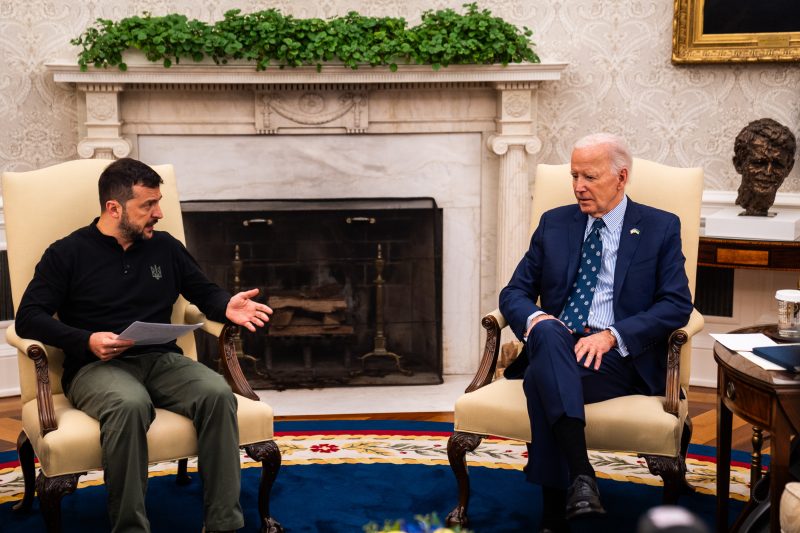The recent address by Ukrainian President Volodymyr Zelensky to the U.S. Congress has once again highlighted the significance of the U.S.-Ukraine relationship amid the ongoing crisis in eastern Ukraine and Russia’s aggressive actions towards its neighbor. Zelensky’s urgent appeal to President Biden for stronger support in confronting Russian aggression has revealed the deeply entrenched partisan divide in the U.S. over foreign policy and national security issues.
The stark contrast in reactions to Zelensky’s speech from Democrats and Republicans reflects the increasingly polarized nature of U.S. politics. While Democrats have been generally supportive of providing additional aid to Ukraine and taking a strong stance against Russia, Republicans have been more skeptical of U.S. involvement in foreign conflicts and have emphasized the need to prioritize America’s interests over those of other nations.
The partisan split over how to respond to the situation in Ukraine is not a new phenomenon. It mirrors similar divisions that have emerged in recent years over a range of foreign policy challenges, from the Iran nuclear deal to the withdrawal of U.S. troops from Afghanistan. These divisions are driven by differing perspectives on America’s role in the world, the use of military force, and the balance between advancing U.S. interests and promoting human rights and democratic values.
The U.S.-Ukraine relationship is at a critical juncture, with Zelensky calling on the Biden administration to provide more robust support in the face of Russian aggression. The stakes are high, not only for Ukraine but also for the broader geopolitical landscape in Europe and beyond. How the U.S. responds to Zelensky’s appeal will have far-reaching implications for regional stability, U.S. credibility, and the future of the rules-based international order.
The challenge for President Biden and Congress is to navigate the partisan divide and chart a course that is both principled and pragmatic. Balancing the need to support Ukraine’s sovereignty and territorial integrity with the imperative of avoiding a direct confrontation with Russia is a delicate task that requires careful diplomacy, strategic foresight, and unity of purpose.
As Zelensky’s appeal underscores, the U.S. has a moral and strategic interest in standing with Ukraine and pushing back against Russian aggression. The challenge now is for the Biden administration and Congress to rise above partisan politics, work together in the national interest, and respond decisively to the urgent call for solidarity from a key ally in a volatile region. The world is watching, and the choices that the U.S. makes in the coming days and weeks will shape the future of Ukraine and the wider world for years to come.
